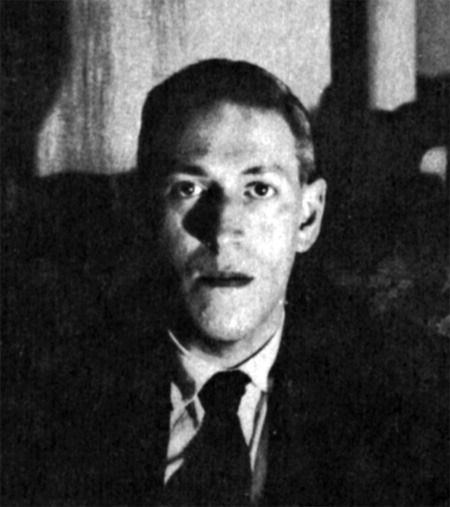A Beautiful Friendship: Lovecraft’s Induction into the WEIRD TALES Roster
Friday , 12, February 2016 Appendix N 2 Comments Thanks to the tireless efforts of SFFAudio, a smorgasbord of hard to find information about the early days of the weird fiction scene is freely available for anyone that wants to dig through it. Among the many treasures hidden in the scans from Weird Tales magazine are H. P. Lovecraft’s first several letters to that iconic publication.
Thanks to the tireless efforts of SFFAudio, a smorgasbord of hard to find information about the early days of the weird fiction scene is freely available for anyone that wants to dig through it. Among the many treasures hidden in the scans from Weird Tales magazine are H. P. Lovecraft’s first several letters to that iconic publication.
Here is a passage from where he introduces himself and attempts to make his first sale:
My models are invariably the older writers, especially Poe, who has been my favorite literary figure since early childhood. Should any miracle impel you to consider the publication of my tales, I have but one condition to offer; and that is that no excisions be made. If the tale cannot be printed as written, down to the very last semicolon and comma, it must gratefully accept rejection. Excision by editors is probably one reason why no living American author has a real prose style…. — H. P. Lovecraft, September 1923
And here he is again having to smooth things over after that first bombshell ruffled a few feathers:
I should apologize if my former letter seemed to tax WEIRD TALES with seeking conventional material. Such was not my intention in any way. I only meant that I presumed you would not wish too subtle or cryptical material for presentation to the general public. There is a difference between mere originality and delicate symbolism, or hideously nebulous adumbration…. In a word, I take it that WEIRD TALES wants definite stories, with a maximum of plot, tension of situation, explosive climax, and statement rather than too elusive suggestion…. — H. P. Lovecraft, October 1923
It’s hard to imagine now, but “Dagon” was a radically different story for Weird Tales at the time. How did it go over?
H. P. Lovecraft’s uncanny stories are making a decided hit, it seems. — Weird Tales, January 1924
People loved it! And so it was that Lovecraft’s relationship with Weird Tales began in earnest. In time he would cease to be the nonconformist– and gradually end up defining the genre. What was the key difference between Lovecraft’s work and that of his contemporaries of the early twenties…? He explains:
Popular authors do not and apparently cannot appreciate the fact that true art is obtainable only by rejecting normality and conventionality in toto, and approaching a theme purged utterly of any usual or preconceived point of view. Wild and ‘different’ as they may consider their quasi-weird products, it remains a fact that the bizzarrerie is on the surface alone; and that basically they reiterate the same old conventional values and motives and perspectives. Good and evil, teleological illusion, sugary sentiment, anthropocentric psychology– the usual superficial stock in trade, all shot through with the eternal and inescapable commonplace…. — H. P. Lovecraft, March 1924
He’s not exactly out to win friends and influence people there with that kind of straight talk, but in time that’s exactly what happened: J. C. Henneberger would offer him the editorship to Weird Tales magazine shortly thereafter.
On the whole, writer tend to be blunt, and though capable of it, do not express themselves in language that builds consensus.